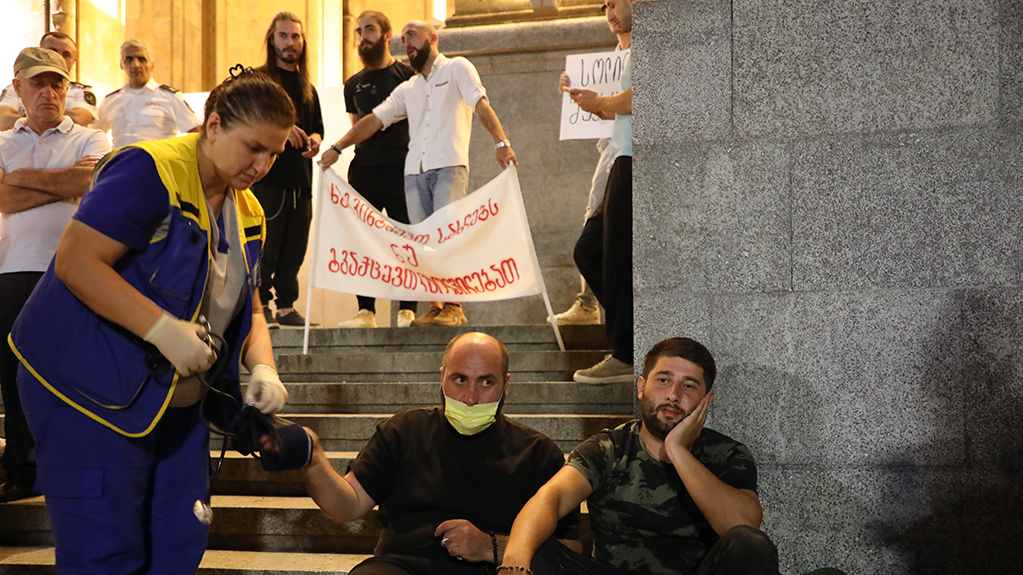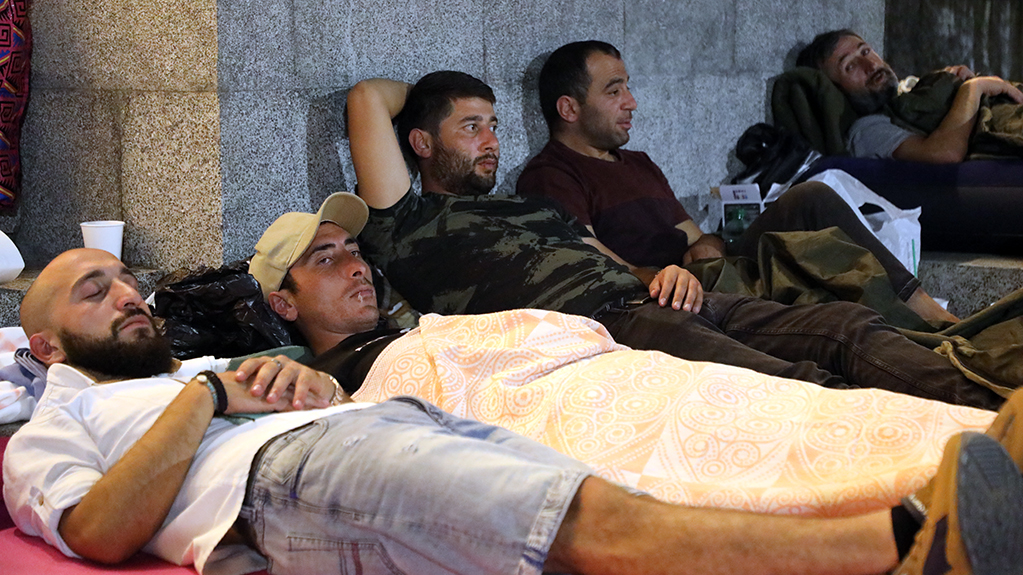"I can't let you bring it in. This is not a hotel for laying down here. I can't allow you to pitch a tent or provide any accommodation in front of the parliament building. There are various authorities involved," said Lasha Jokhadze, head of the main division of the Patrol Police Department, along with other high-ranking officials from the Ministry of Internal Affairs. They did not allow the Chiatura protest participants to set up a tent in front of the parliament building or to bring warm clothes and blankets to lay on the concrete and spend the night. 5 people have had their mouths sewn shut for 11 days and are starving. The health condition of one of them has worsened.
News
Residents of Shukruti village moved from Chiaturi to Tbilisi yesterday, marking the 183rd day of their continuous protest. They are demanding adequate compensation from the company Georgian Manganese for the destruction of their homes due to ore extraction, so they can continue living in a safe environment.
The affected population is calling for the involvement of the central government to address the issue. However, no government representatives appeared with the protesters. Instead, a large number of police were mobilized around all four sides of the parliament building, with all entrances being strictly controlled.

The Tbilisi City, Appeals, and Supreme Courts have already ruled on the right to set up a tent during protests, recognizing it as part of the constitutional rights to assembly and freedom of expression.
In a decision dated February 9, 2018, the Administrative Affairs Chamber of the Tbilisi Court of Appeal explained that "the Constitution of Georgia allows a person to choose the form, means, and place of expression at their discretion. In particular, the law guarantees the right to publicly and peacefully express an opinion in any part of the street and in any form deemed appropriate. Expression of opinion can occur not only through speech and statements but also through silent means or by constructing temporary structures, as long as it does not contradict applicable legislation."
Based on Article 9, Clause 1 of the Law on Assembly and Demonstration, it is prohibited to hold assemblies or demonstrations in the buildings of the prosecutor's office, police, penitentiary institutions, and law enforcement agencies; at railway stations, airports, and ports; in the outer forbidden zone of penitentiary institutions and within a twenty-meter radius from them; in military units and facilities, and within a one-hundred-meter radius from their entrances. It is also forbidden to block entrances to buildings, highways, and railways during gatherings or demonstrations.
As defined by the European Court of Human Rights, the only justification for interfering with the right provided by the Convention is that which stems from the requirements of a "democratic society." This involves two conditions: there must be a pressing public need to interfere with the right, and the interference must be proportionate to the legitimate aim.
On September 27, 2023, seven deputies from the ruling Georgian Dream registered a legislative initiative in the parliament proposing amendments to the law on assembly and demonstration and the code of administrative offenses. According to the proposed changes, demonstrators would be prohibited from setting up "temporary constructions," and if they did, they would face administrative fines ranging from 500 to 5000 GEL or arrest for up to 15 days. The OSCE/ODIHR Office for Democratic Institutions and Human Rights (ODIHR) urged the parliament not to adopt these amendments, as they could be used to discriminatory suppress political dissent. The parliament adopted the bills in an expedited process, in three readings, but the president's veto was not overridden.















